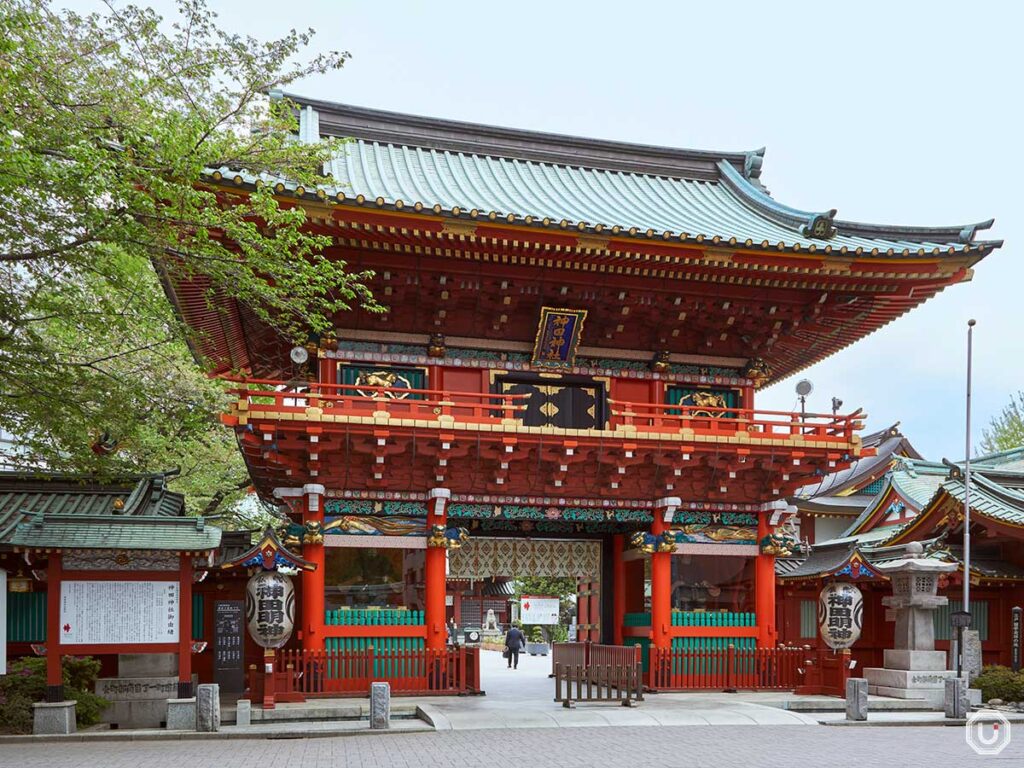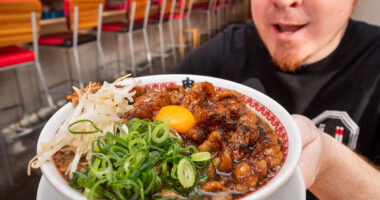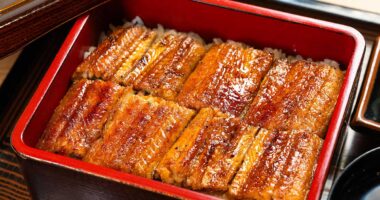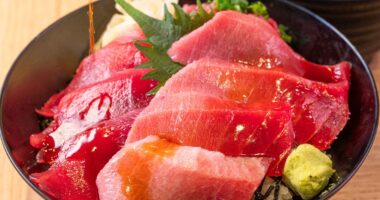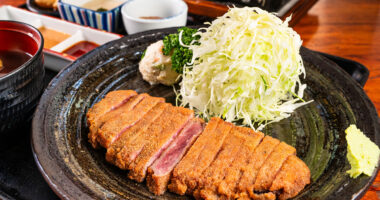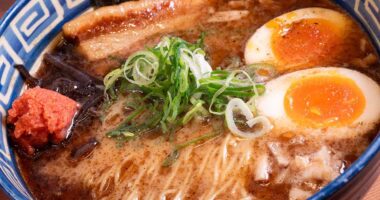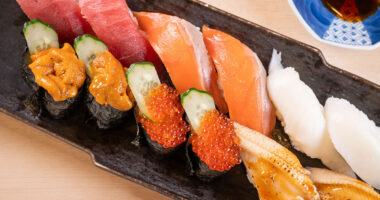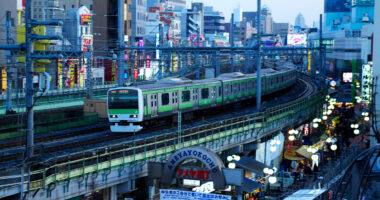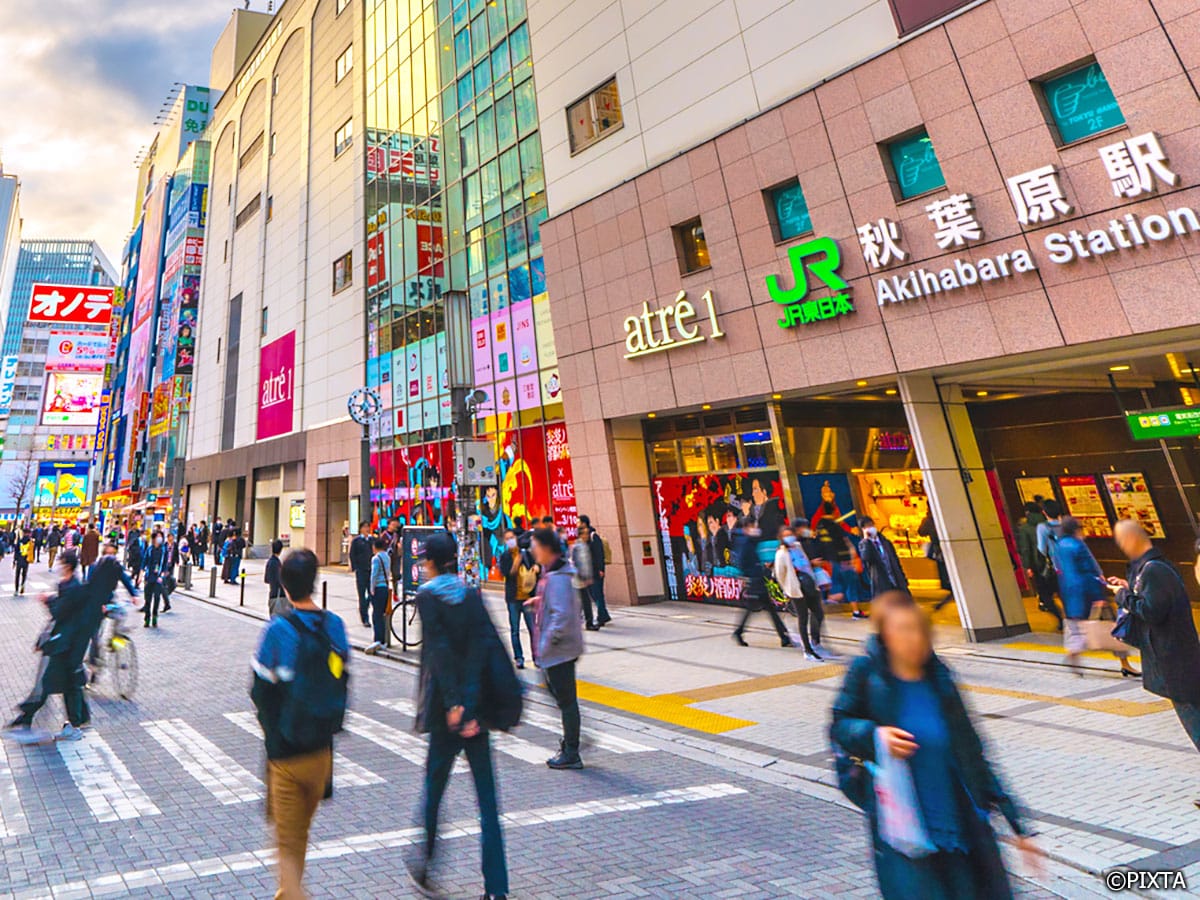Kanda Myōjin, also known as Kanda Shrine, is a historic landmark located within walking distance from Ochanomizu and Akihabara Stations in Tokyo. Revered as a guardian presence in Tokyo, it has a deep history and offers numerous blessings to its visitors.
The deities enshrined there serve as the tutelary ujigami (regional guardian deities) for many areas, including Kanda, Nihonbashi, and Akihabara. This long-standing history is a testament to the shrine’s importance and the various benefits it provides.
At Kanda Myojin, visitors can seek blessings for business prosperity, matchmaking, and protection from evil and disasters.
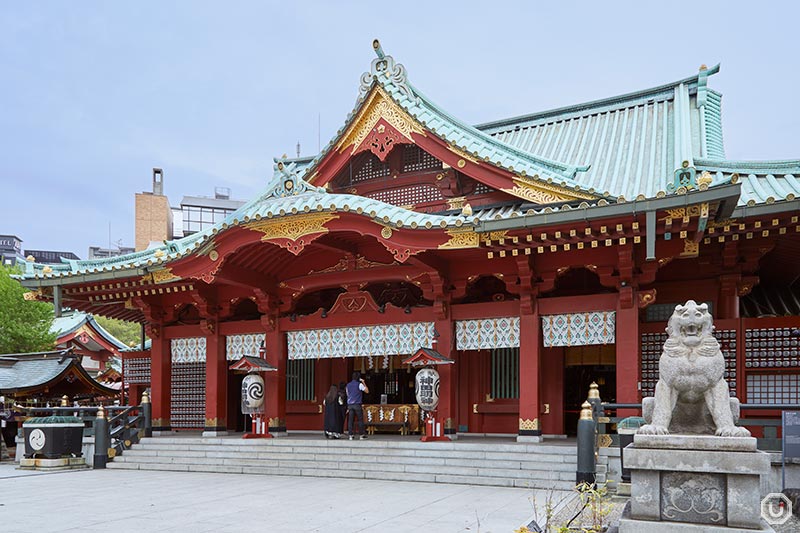
The main hall of Kanda Myojin
Kanda Myojin: A shrine famous for anime collaborations
Kanda Myojin is renowned for its innovative blend of tradition and modernity.
One of its most famous collaborations is with the Love Live! multimedia franchise which has been adapted into anime and games. The shrine has appeared many times in the Love Live! anime series, and in the past, even created special omamori (protective amulets) and ema (votive tablets) in collaboration with it.
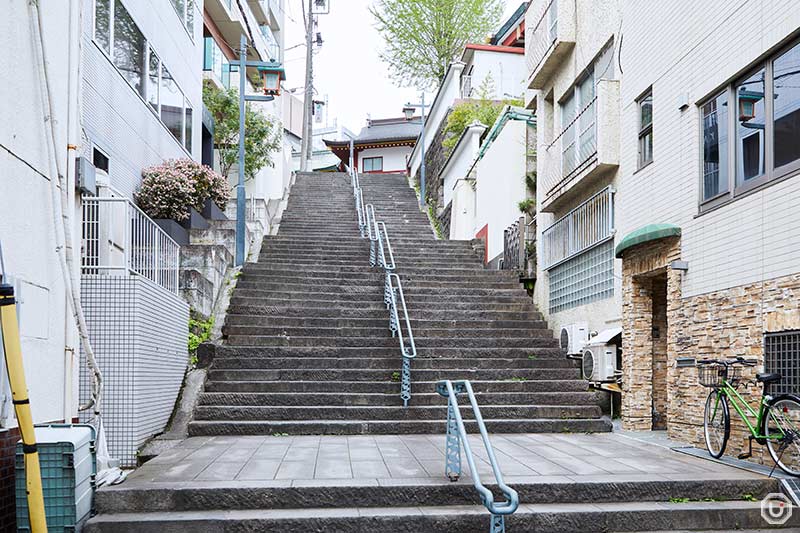
The Otokozaka steps, which appear in the Love Live! anime series
Even though the distribution of these special items has ended, Kanda Myojin remains a popular “pilgrimage site” for Love Live! fans. In fact, fans have made it a tradition to visit the shrine before attending events related to the series.
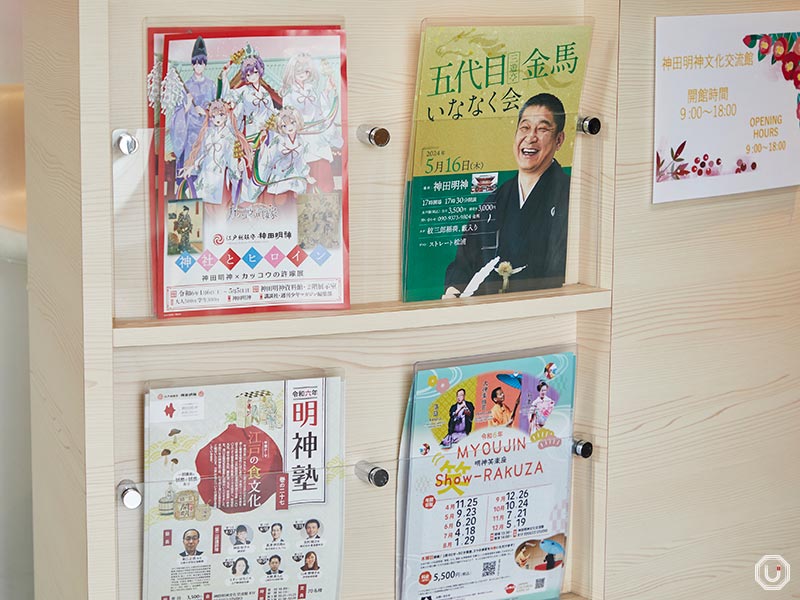
Kanda Myojin also collaborates with other anime works as well as traditional performing arts
EDOCCO: A multipurpose facility including Kanda Myojin Hall
Kanda Myojin’s commitment to innovation is also evident in its modern glass building, EDOCCO. This facility was built to preserve traditional culture while promoting new Japanese culture. Inside EDOCCO, you will find Kanda Myojin Hall, which hosts live events, and the EDOCCO SHOP, where you can purchase souvenirs.
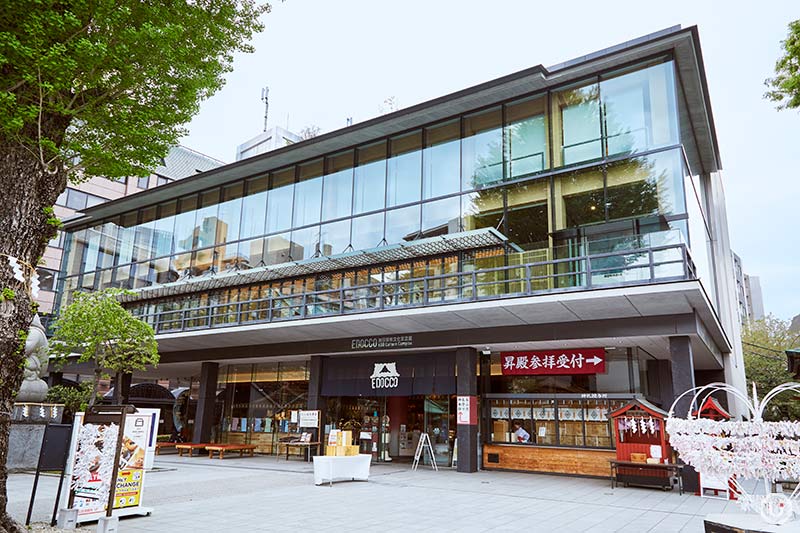
Exterior of EDOCCO
The EDOCCO SHOP on the first floor offers unique goods and souvenirs exclusive to Kanda Myojin. After visiting the shrine, be sure to stop by and pick up a memento.
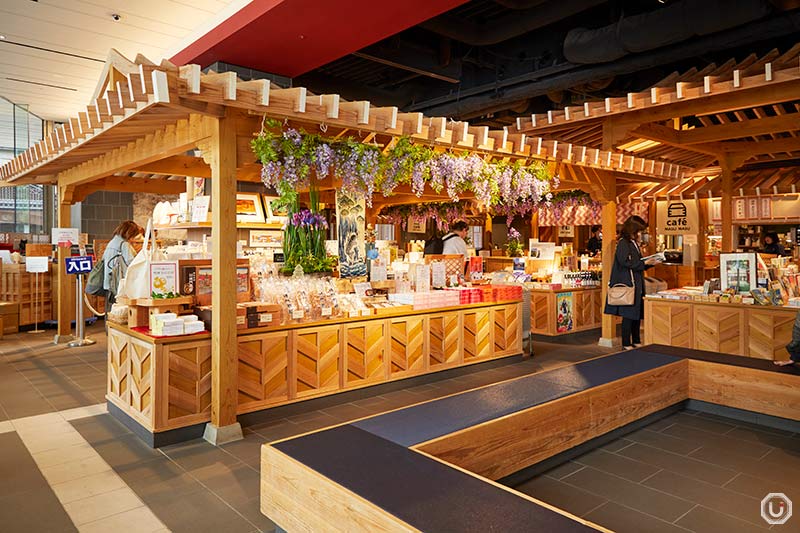
EDOCCO SHOP
In addition to the EDOCCO SHOP, you’ll find the EDOCCO CAFE on the first floor.
During the day, you can enjoy lunch sets and sweets, and after 6 p.m., the cafe serves sake and oden.
One of their specialties is the “Edo Musubi -Musubi-,” a bento meal that plays on the Japanese words for “matchmaking” and “rice ball.” It offers matchmaking blessings and is unique to Kanda Myojin.
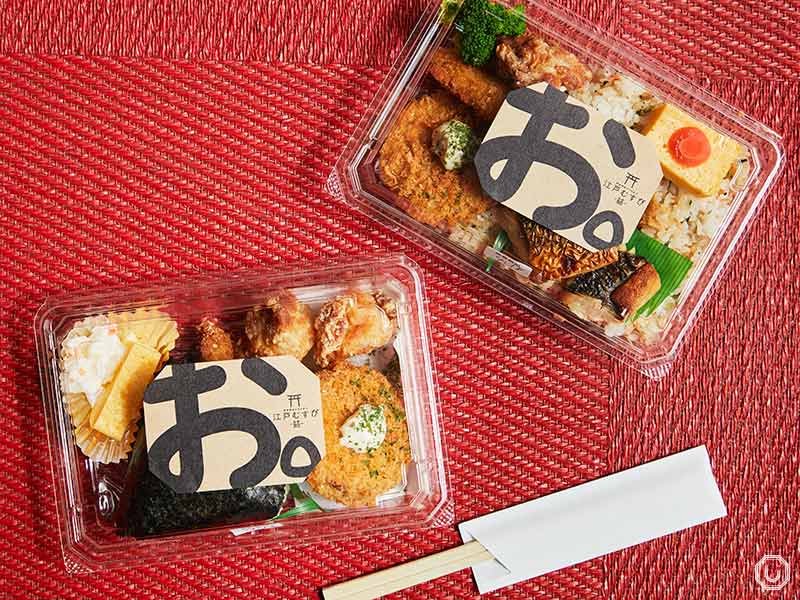
“江戸むすび-結-(大サイズ),” Edo Musubi -Musubi- (Large) 500 JPY (tax included)
Unique products abound at the EDOCCO SHOP!
One standout item is “Jinja Ēru,” a carbonated drink made with grated ginger, cleverly named to play on the words jinja (Shinto shrine) and ginger on the one hand, and the word ēru, which means “to cheer in support” (originating as a loanword from the English “yell” and used at sporting events). This drink is available individually, or in sets of three or eight, making it a popular gift.
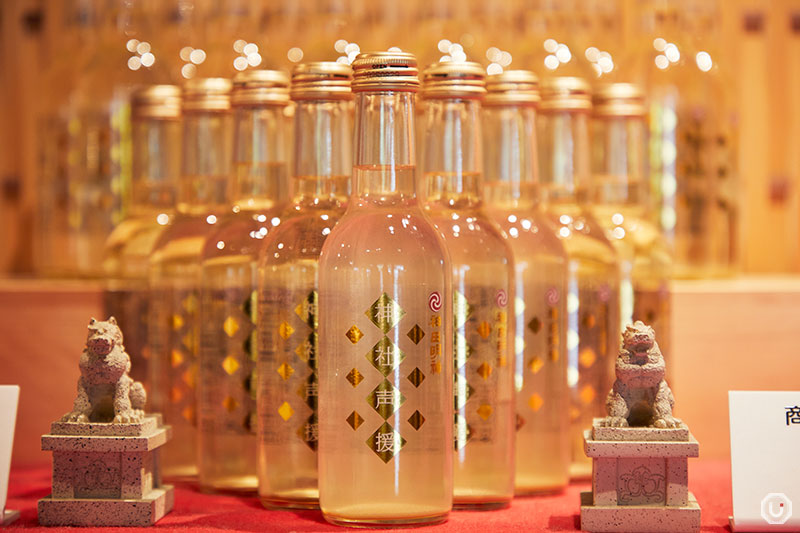
“Jinja Ēru”
Kanda Myojin also offers a wide variety of goshuinchō booklets for collecting goshuin (shrine seals).
You’ll also find a selection of sweets which make perfect gifts, leaving you spoiled for choice.
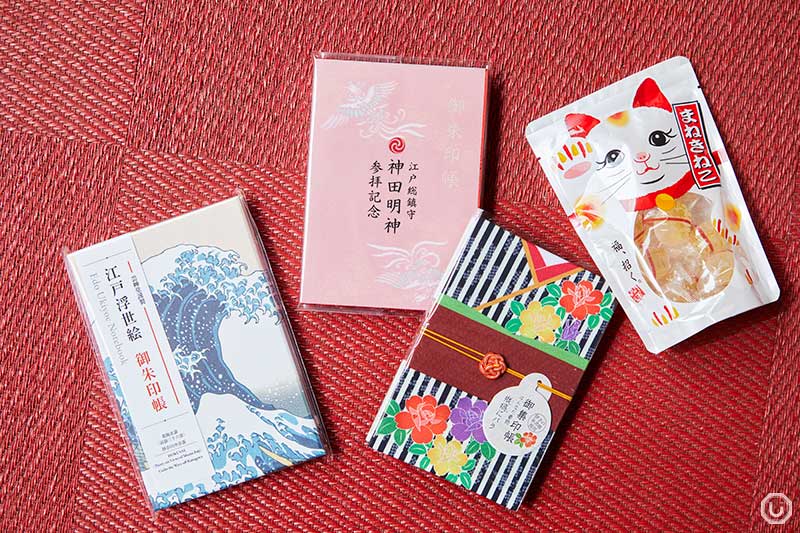
Get your protective amulets and goshuin after you worship
At EDOCCO, you can receive omamori and goshuin. Generally, it is customary to receive them after worship, so be mindful of the proper order.
Kanda Myojin offers over 50 types of sacred items (amulets, talismans, etc.) for various purposes, including business prosperity and good fortune in competitions, good health, protection against evil, and traffic safety. In addition to the first floor of EDOCCO, they are available at the shrine office located to the right after passing through Zuishinmon Gate.
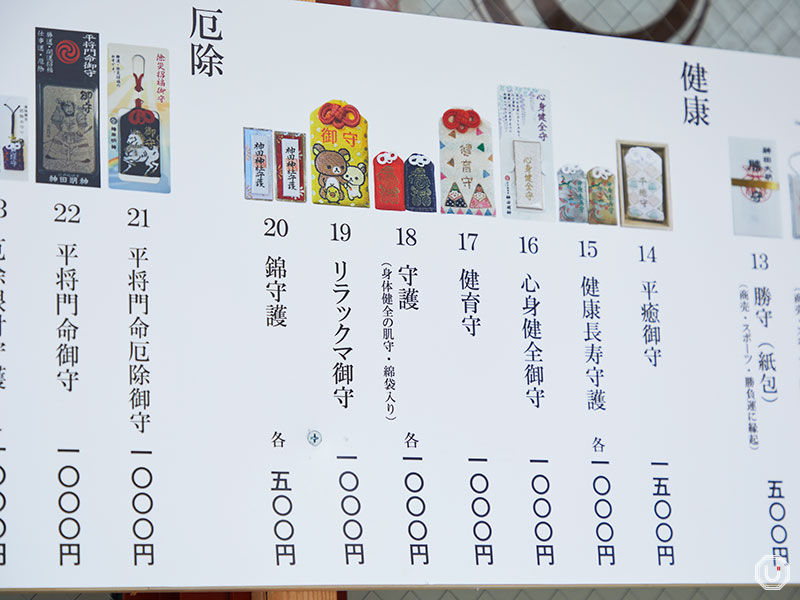
To receive a goshuin, provide a hatsuhoryō (traditionally the first fruit of the season, but now a monetary offering) of 500 yen. At Kanda Myojin, the goshuin is provided on a piece of paper in a plastic folder printed with an image of the shrine’s main hall.
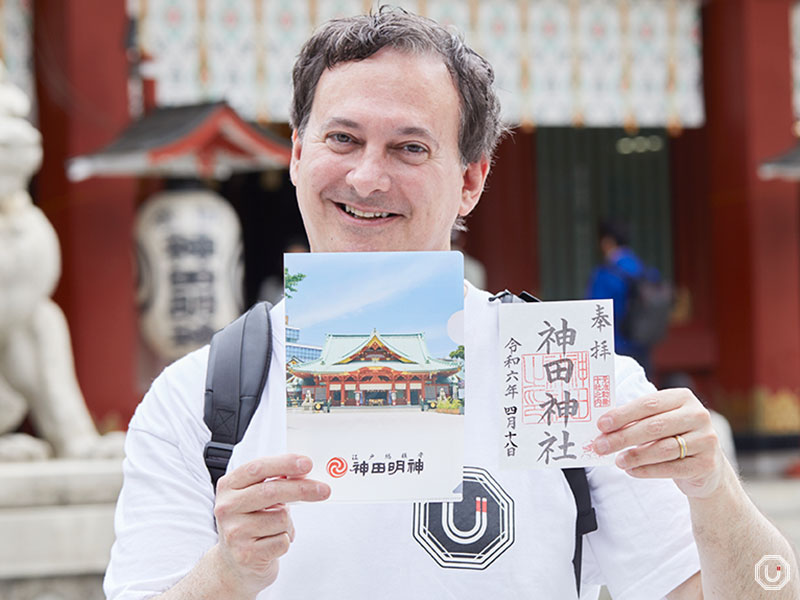
Goshuin 500 JPY
When can you visit Kanda Myojin?
Kanda Myojin is open 24 hours a day, allowing visitors to worship at any time.
The deities enshrined here include Ōnamuchi-no-Mikoto (also known as Daikoku-sama), Sukunahikona-no-Mikoto (also known as Ebisu-sama), and Taira no Masakado-no-Mikoto. (Taira no Masakado was a historical figure, but he was posthumously deified and enshrined at Kanda Myojin).
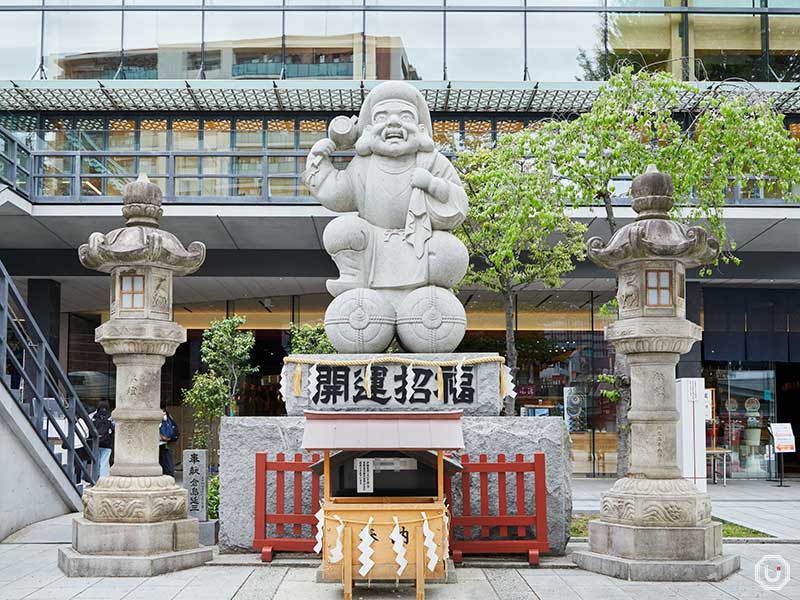
Ōnamuchi-no-Mikoto
Daikoku-sama is believed to bring good fortune in matchmaking, while Ebisu-sama is associated with business prosperity.
Meanwhile, Taira no Masakado-no-Mikoto is worshipped as a deity for protection from disasters and evil and is also famous for bringing good luck in all kinds of competitions.
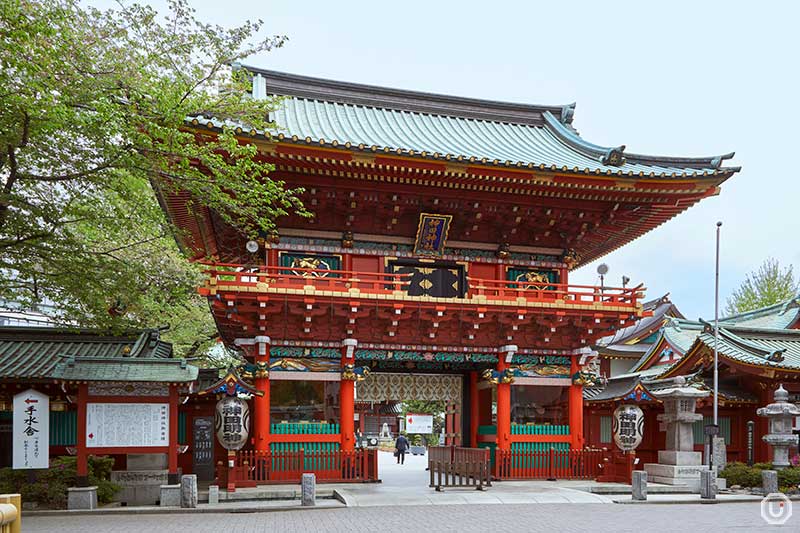
The Zuishinmon Gate features carvings of Daikoku-sama as well as the tsunagiuma horses associated with Taira no Masakado
Surrounding the main hall are smaller shrines called massha dedicated to the same three main deities, as well as other deities related to Kanda Myojin.
When visiting, why not stop by these smaller shrines as well? If you have a connection with the deities enshrined there, they may bring you wonderful benefits.
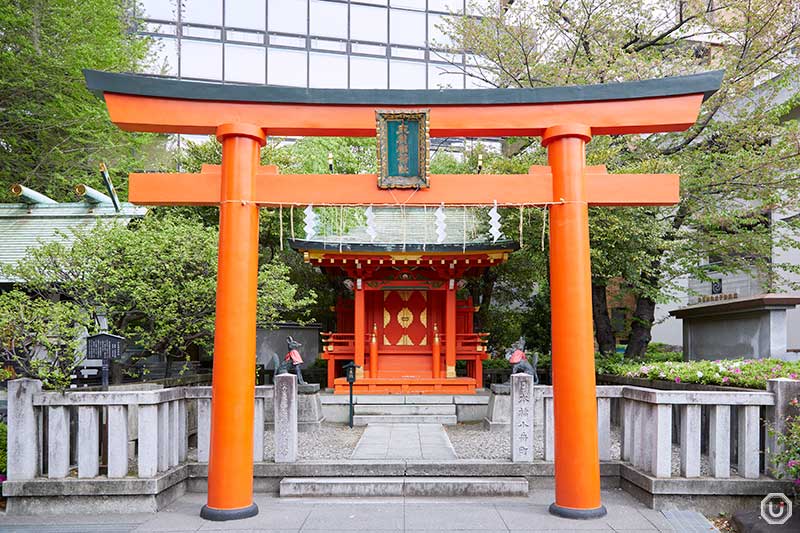
The Suehiro Inari Shrine, one of the massha of Kanda Myojin
Akari, the sacred horse of Kanda Myojin
Kanda Myojin has a sacred horse (shinba, shinme or jinme in Japanese). She’s a pony named Akari, affectionately known as “Akari-chan.”
A shinba is a horse specially dedicated to a shrine for the gods enshrined there to ride. Therefore, as Kanda Myojin’s shinba, Akari-chan sometimes participates in religious ceremonies.
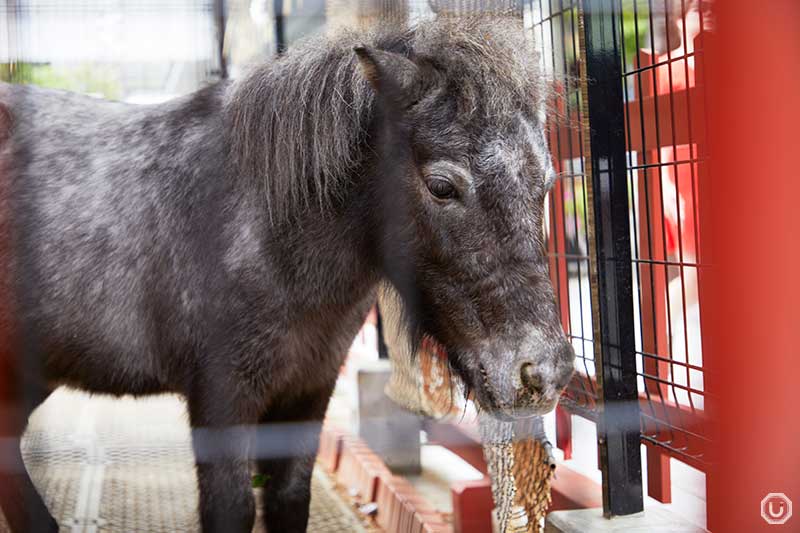
Akari, the sacred horse
Usually found in her stable on the left side of the main hall, Akari-chan is very popular with visitors, bringing them joy with her charming appearance.
Kanda Myojin, a guardian presence watching over Tokyo
Kanda Myojin is known as the sōchinju (a general shrine or deity that guards an entire land or region) of Edo, and such, has an important presence guarding over the city.
This is largely due to Tokugawa Ieyasu, the founder of the Edo Shogunate. Before Japan entered the Edo period, Tokugawa Ieyasu visited Kanda Myojin to pray for victory in the Battle of Sekigahara. After his victory and the unification of Japan, Ieyasu came to revere Kanda Myojin.
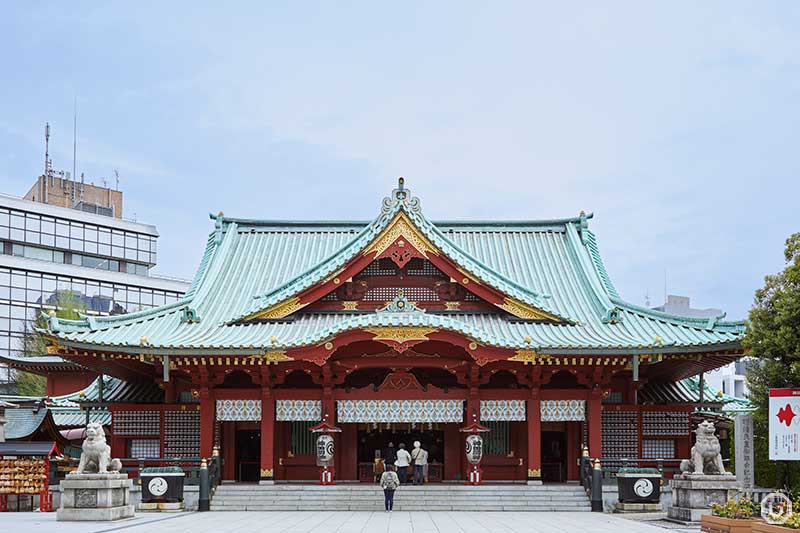
After the establishment of the Edo Shogunate, Kanda Myojin took on the role of protecting Edo from all kinds of disasters.
Kanda Myojin is strategically located northeast of Edo Castle, at the omote kimon (literally the “front demon gate”). In Onmyōdō, a traditional Japanese geomantic and cosmological system, this direction is considered dangerous as it is believed to attract malevolent forces, so shrines were placed there for protection.
This strategic importance led the shrine to garner great respect from both the Edo Shogunate and the people of Edo.
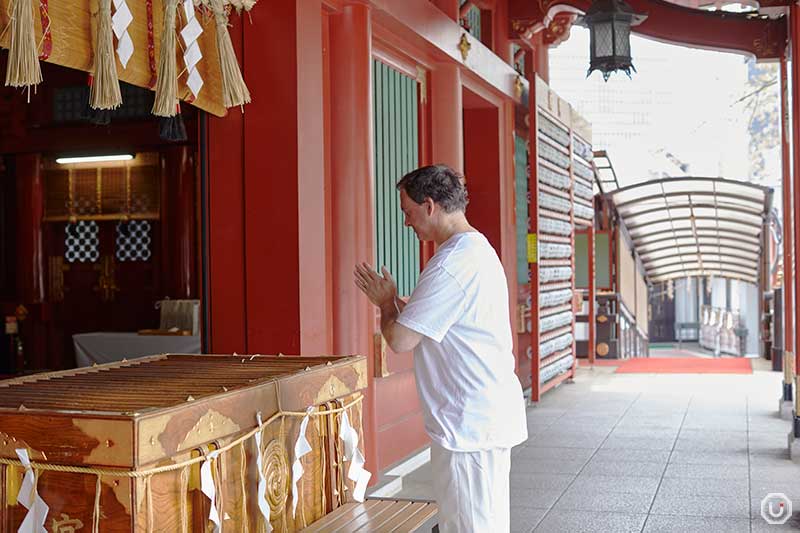
When worshipping at Kanda Myojin, bow slightly before the main hall, place money in the offertory box, bow twice, clap twice, and then bow once more
To this day, Kanda Myojin remains a spiritual cornerstone for the community.
At the beginning of the year, local residents and office workers form long lines to visit the shrine and pray for their companies’ success and good fortune at work.
Furthermore, Kanda Myojin’s innovative approach of embracing new cultural trends of each era undoubtedly plays a significant role in its continued relevance.
Shrine Information
| Name | 神田明神 Kanda Myōjin |
|---|---|
| Address | 2-16-2 Kanda, Chiyoda-ku, Tokyo
|
| Access |
Suehirochō Station 4-minute walk from Suehirochō Station Exit 3
Ochanomizu Station 6-minute walk from Ochanomizu Station Hijiribashi Exit Ochanomizu Station 6-minute walk from Ochanomizu Station Exit 1 Akihabara Station 9-minute walk from Akihabara Electric Town Exit |
| Phone number | 03-3254-0753 |
| Visiting Hours | 24 Hours |
| Sacred items | Available until 17:00 |
| Goshuin | Available until 17:00 |
| Omikuji | Available until 17:00 |
| Admission fee | Free |
| Official website | https://www.kandamyoujin.or.jp/ |
| Other information |
|
※The information in this article is current as of April 2024.
